Sustainability
Vision and Strategy
Our goal as teaching institution with a connection to the community is to make each one of our campuses a MORE SUSTAINABLE PLACE.
Our motto is: "It’s the greatest of all mistakes to do nothing just because you can only do a little. Do what you can. " Sydney Smith. Sustainable development is no longer a concern with the “future”; it has become a global challenge of “today” and “now”.
Fully aware of the role that education institutions and education play in the pursuit of a world agenda for sustainability, Ensino Lusófona integrates, in the vision and strategic development of each one of its institutions, a genuine commitment grounded on socially and ethically responsible environment management models to be implemented by each institution according to the legislation of the countries where they are located.
We believe in the benefits of applying socially, ethically and environmentally responsible management models which leverage higher standards of ecoefficiency, protect the environment and preserve the natural resources.
Our goal is to promote differentiation and excellence via the creation of an internal climate that fosters learning, innovation, efficiency, expertise and the continuous improvement of our performance, both nationally and internationally.
OUR COMMITMENT
We believe that our commitment as well as our sustainability vision and strategy ensure a development model adapted to all the communities where Ensino Lusófona operates, particularly in the educational, training, social, cultural and environmental areas.
It is our conviction that, in close cooperation with our stakeholders, we can contribute to the sustainability of economic growth, education, social cohesion and environmental protection, ensuring the quality of life of present societies and future generations.
We wish to make the world a MORE SUSTAINABLE PLACE…
Social Responsibility
The main goal of Ensino Lusófona’s Social Responsibility Programme is to express the Vision, the Values and the Strategic Commitment defined by each institution that integrates the Ensino Lusófona project for sustainable development.
Education being our core area of intervention, the support to social, educational, cultural and environmental development of the communities they integrate, the institutions of the Ensino Lusófona project reinforce the links to all stakeholders in an active connection between citizens and companies.
The Social Responsibility Programme is structured according to the strategic orientations of each institution and is divided into:
Educational benefits for students
The Social Service Regulation aims to lay down the rules to grant educational benefits to the students enrolled in the different institutions of Ensino Lusófona. Educational benefits involve a decrease in the annual amount to be paid for tuition, made available to students, students’ relatives and workers of Ensino Lusófona, former students enrolled in PhD programmes, students from non-higher education institutions that are part of Ensino Lusófona, among others.
To date, these benefits have been steered to the education institutions located in Portugal. Step by step, they are also being implemented in the HEIs outside Portugal.
Scholarships
The Ensino Lusófona institutions have several excellence and merit scholarships schemes which reward the best students that enter our HEIs as well as our students who wish to advance their studies, the best students attending our bachelor and master programmes, and all students who enter our PhD programmes.
Scholarships for students from CPLP countries – Community of Portuguese Speaking Countries
The educational benefits granted students from the countries of the Community of Portuguese Speaking Countries integrate the institutional support programme aimed at training and prepare highly qualified human resources for the member states, with a view to contributing to the development of these Portuguese-speaking countries and peoples in their different fields.
To this end, Ensino Lusófona seeks to fulfil its mission and annually awards scholarships to support the students from CPLP countries, as a decrease in the annual amount of the tuition fees, thus ensuring the support these youngsters need to attend and complete higher education.
Further information on the scholarship and educational benefits schemes can be found on each institution’s website.
Environmental responsibility
While accomplishing our sustainability strategic vision, the institutions of Ensino Lusófona have been promoting a change in the attitudes and behaviour of all those who daily intervene in the life of the institution. Each one of them have taken simple measures to foster recycling, reduction, accountability, refusal and respect for others and the environment.
The pilot project was carried out at the Lusófona University campus, in Lisbon, with:
- Use of renewable energies - photovoltaic panels
Aligned with the environmental policy Lusófona University has adopted, photovoltaic panels have been installed on campus so as to contribute to the production of electric power.
The photovoltaic power plant, UPAC (production unit for private consumption) will ensure an estimated production of 30% of the campus needs (annual production of 400,000 kW for a total consumption of 1,400,000kW) thus reducing our environmental footprint by lowering carbon emission. - Electrical mobility
The University’s location being within easy reach of the entire public transportation network is at the centre of Lisbon’s electrical and environmental mobility project. It already has two Rapid Charge stations in operation for electric cars with a connection to the MOBI.E network. - Recycling _ Raising awareness about waste separation
Recycling units have been installed throughout the campus, and training initiatives have been carried out on how to separate waste correctly. - Use of glass bottles and others of equal durability
With the support of the Lisbon Town Hall, which offered the bottles, Lusófona University no longer uses plastic bottles and cups in conferences, thesis and dissertation defences, and has given staff reusable bottles. Water dispensers have also been installed throughout the campus. - "Relamping" – Awareness raising initiative about energy saving
The "relamping" procedure basically consists of replacing fluorescent bulbs, keeping the original lamp, with lamps with longer-lasting LED (Light Emitting Diode) technology, thus contributing to an effective decrease of approximately 90% in overall energy consumption. - Biological Vegetable Garden
The project will be carried out in two stages: the 1st stage of regeneration, with the creation of two seedbeds in rustic wood built by the University’s maintenance team, where herbs and vegetables were planted. The 2nd stage will involve the regeneration of the remaining area, with more herbs and vegetables being planted. This vegetable garden aims to be a space for stidy and exploration of the different characteristics and applications of plants for the development of future projects with students in different courses of the University.
Projects and Initiatives
As educational project covering a broad area of intervention in education and training, the Ensino Lusófona institutions, particularly in Portugal, gather unique national and international research projects by institution or in consortium, and are integrated in an Institute for Research, ILIND - Lusophone Institute for Research and Development.
At present ILIND gathers 13 research centres/units, with teams dedicated to the various ongoing projects. They are committed to international cooperation and the establishment of strategic partnerships.
In 2021 the private HEIs of Ensino Lusófona were the ones that had the highest number of FCT-approved projets and the highest amount of funding granted!
Lusófona Universidade Lisbon is involved in an innovative European project, FILMEU, the main goal of which is to found a top-quality European University focused on the fields of Cinema and Media Arts.
Protocols and Partnerships
Striving to fulfil the goal of “Education for all”, Ensino Lusófona has pursued its policy of giving discounts to the students enrolled in its institutions who are part of public entities, companies, trade unions, professional or cultural associations, with which it has signed cooperation protocols.
Organizational Conduct Ethics
For the most part, especially in Portugal, the Ensino Lusófona institutions have ethics committees. Those who do not have these committees, have other bodies, such as an “Ombudsman” system, to ensure compliance with an ethics code and sanction issues of social misconduct and irregular behaviour.
The President of the Ethics Committee of Lusófona University, Ana Benavente, has stated… “Ethics comes from the Greek "ethos" which means the set of values that guide people’s behaviour in society. It is crucial for social wellbeing in all domains: personal, family, social and professional.
In education and particularly in the academic community, Ethics is transversal to the training, research and leisure activities, covering all academic spaces, both formal and informal, and all the relationships, from faculty and students, to academic services and peer relations…”
Ethics Code of Universidade Lusófona de Humanidades e Tecnologias
Gender and Diversity Plan


Context
It falls upon the European Union, within the scope of its powers, to promote equality and diversity, fundamental values of the European project and of the Social Rights of Citizens, as set out in the Treaties and other significant documents.
In the business world we can only achieve our full potential if we include a dimension of acceptance and inclusion of all the diversity of our talents and if we ensure that equality is a daily practice of the institutions.
In line with these reflection, and fully aware of the importance of advancing to the formalisation of a set of commitments that will give centre stage to the strategies already followed internally, the Administration of COFAC - Cooperativa de Formação e Animação Cultural CRL, founding body, promoted the creation of the taskforce with the mission of taking the necessary steps for the preparation of the Gender and Diversity Plan of the Ensino Lusófona institutions, as well as developing a series of initiatives that aim to lay the foundations for the creation of a Lusophone, scientific and academic community active in these dimensions, and that intersect with the European and international values of promoting and boosting the implementation of practices of equal opportunity, gender equity and diversity in the area of science and higher education.
This work is being done in line with the goals set out in the European Agenda/Horizon Europe and the UN’s 2030 Agenda for Sustainable Development, namely in the areas of Quality Education (Goal 4), Gender Equality (Goal 5) and Reduced Inequalities (Goal 10), and promotion of consistent social impact, while not forgetting the guidelines of the National Strategy for Equality and Non-Discrimination 2018-2030, laid down in Resolution of the Council of Ministers 61/2018, “3 em Linha” [Aligned 3] - Programme for the reconciliation of professional, personal and family life 2018-2019, and Law 134/99, of 28 August, that sets out the legal framework for the prevention, prohibition and fight against discrimination.

Axes of Analysis and Intervention
Over the years, COFAC has carried out a range of activities, from the creation of support infrastructures, for example to the family, to the implementation of research projects as well as inclusive educational practices. This Plan aims to reinforce these steps taken and also propose the creation of new and differentiated responses in line with the expressions of shortcomings evidenced by the main stakeholders.
Thus, the focus of intervention in the construction and adoption of the Gender and Diversity Plan for the higher education entities of the Lusófona Group comprehends five axes identified as priority and central, at national, European and international levels:
- A Balance between personal, family, professional life and the organisational culture
- B Gender balance/diversity in leadership and decision making
- C Gender equality/diversity in recruitment and career advancement;
- D Integration of the gender dimension/diversity in research and innovation
- E Measures to fight prejudice, gender inequality and harassment
Plan Implementation Strategy
The first Gender and Diversity Plan for the Ensino Lusófona institutions (2021-2027) derives from the entity’s diagnosis, and is a key milestone for the promotion of gender equity and diversity. It is based on five axes considered to be the priority in terms of the commitments to be taken on in this field.
Descrição e Cronograma de medidas a implementar na promoção da igualdade de género e diversidade
- A Balance between personal, family, professional life and the organisational culture
Initiatives Type (a) Measures Focus Services Involved Indicators Target Promote the reconciliation of the workers’ professional life with family and personal life N Create and implement an internal process involving the adoption of measures, such as remote work or telework, and flexible timetables whenever the tasks to be carried out so allow, namely in instances when workers have underage children or dependent relatives in the ascending line Human Resources Directorate Human Resources Directorate and Administration Evidence of the created and implemented internal procedure; End 2022 Raise awareness to the separation between the professional sphere and the personal sphere R Disseminate, in appropriate and accessible place, information regarding the rights and duties of workers, namely their right to disconnect at weekends, holidays and other non-working moments, as well as the non-mandatory nature of work communication outside office hours, except in cases of proven urgency, and to digital disconnection. Human Resources Directorate Human Resources Directorate and all service and Organic Unit directorates Evidence of the implementation of the awareness-raising initiatives 1st semester 2022 Protect and foster parenting policies R Create and implement an internal process involving the adoption of measures to enable reduction of productivity objectives by reason of parenthood Human Resources Directorate Human Resources Directorate and Administration Evidence of the created and implemented internal procedure; 1st semester 2022 Promote access to educational benefits to relatives of teaching and non-teaching staff, and students R Disseminate, in an appropriate and accessible place, relevant information so that students, teaching and non-teaching staff of the education institutions have access to the benefits in the tuition fees for underage dependents in the support educational infrastructures of the Group or, in their absence, the promotion of cooperation protocols with geographically close entities which also ensure this reduction in monthly charges. Human Resources Directorate Human Resources Directorate and Marketing Directorate Evidence of the implementation of awareness-raising initiatives 1st semester 2022 Safeguard from job insecurity R Maintain a recruitment policy based on dignifying offers and a remuneration policy which will ensure the provision of the household’s basic needs. Human Resources Directorate Human Resources Directorate and Administration Evidence of the procedure and recruitment policies 1st semester 2022 Ensure the continuous involvement of the academic community in the process of improving these indicators R Periodic scrutiny of the needs felt by the elements of the academic community. Administration Quality Management Service, Human Resources Directorate and Marketing Directorate Evidence of the results of the satisfaction and pedagogic surveys in existence in the institutions 1st semester 2022 - B Gender balance/diversity in leadership and decision making
Initiatives Type (a) Measures Focus Services Involved Indicators Target Ensure, whenever possible, the representativity of gender and other identity affiliations in leadership positions N Create and implement an internal process involving the adoption of measures seeking to ensure continuously a balanced representation in terms of gender and other identity affiliations in the leadership structures and other decision-making spheres. Human Resources Directorate Human Resources Directorate and Administration Evidence of the created and implemented internal procedure End 2022 Ensure that the training plan fosters gender equality and diversity issues N Include in the training plan topics that allow for raising the awareness of workers and directors to these topics ILIND Human Resources Directorate and Administration Evidence of the Training Plan adopted annually End 2022 Promote training initiatives on good practices for gender equality and diversity in the labour and academic contexts N Include compulsory training modules for members of the leadership structures and other decision-making spheres which make it possible to enhance management capabilities as regards Equality and Diversity, namely in the moments of performance review, salary review and career advancement,
Contributing to prevent unconscious bias from happening in these occasionsILIND Human Resources Directorate, Rectories/Administration and Organic Unit Directorates Evidence of the Training/Awareness-raising Initiative Plan defined annually End 2022 - C Gender equality/diversity in recruitment and career advancement
Initiatives Type (a) Measures Focus Services Involved Indicators Target Ensure the principle of equality and non-discrimination in access to employment N Create and implement an internal Recruitment and Selection procedure that includes disaggregation rules by gender according to the elements identified in the Labour Code Human Resources Directorate Human Resources Directorate and Administration Evidence of the created and implemented internal procedure; End 2022 Ensure a Recruitment and Selection process in line with the principles of non-discrimination between men and women and with equity principles N Prepare internal guidelines to ensure, whenever possible, equity in the presentation of genders and other identity affiliations in the teams, and that recruitment and selection processes seek to provide directors/administration with balanced applicants in terms of representativity of gender as well as other identity affiliations, and, ideally, with more applicants of the least represented gender in the position in question, provided there are applicants with suitable qualifications Human Resources Directorate Human Resources Directorate Evidence that the norm has been integrated in the created and implemented internal procedure; End 2022 Provide the institution with criteria for promotion and career advancement that ensure gender equality and diversity. N Create and implement an internal procedure of promotion and career advancement that takes into account the protection of parenthood and family support to dependent relatives in the ascending line Human Resources Directorate Human Resources Directorate and Administration Evidence of the created and implemented internal procedure; Final 2022 Support to initiatives that aim at inter-cooperation among the different players in the academic community N Foster and support the constitution of informal mutual support groups for professionals at the start of their career and of minority groups (informal structures for support, feedback and networking). ILIND ILIND, Rectories and Administrations of the HEIs Evidence of the initiatives triggered by these informal structures - D Integration of the gender dimension/diversity in research and innovation
Initiatives Type (a) Measures Focus Services Involved Indicators Target Include the topics of Inclusion and Diversity in the training and research agenda of the education institutions of the Group N Assess the creation of a cross-sectional CU or of several CUs that may be offered annually to students on the topics of inclusion and diversity Rectories and Organic Unit Directorates Rectories, Organic Unit Directorates and DGPA Evidence of the study to implement this possibility and record of its analysis in the bodies End 2022 Provide the institution with mark-up criteria in research projects that ensure gender equality and diversity N Create and implement an internal mark-up procedure in the criteria to award internal funding to research project proposals that foster the integration of the gender and diversity dimension in research projects ILIND ILIND and Research Centres Evidence of the created and implemented internal procedure End 2022 Increase the scientific collection of the institution on the topics of Inclusion and Diversity N Foster the increase in the number of projects, publications and scientific event that include the issues of gender and diversity in an in-depth approach. ILIND ILIND and Research Centres Evidence of the created and implemented internal procedure End 2022 N Foster the creation of awards and distinctions for research in the fields of gender equality and diversity (including Master and PhD students). ILIND ILIND and Research Centres Evidence of the created and implemented internal procedure End 2022 - E Measures to fight prejudice, gender inequality and harassment
Initiatives Type (a) Measures Focus Services Involved Indicators Target Prevent and fight harassment in the workplace and in the academic context N Active promotion of the culture and practices of fighting harassment, discrimination or intimidation by conducting awareness-raising/training sessions and disseminating documents on the topic of general interest in specific area of the intranet and netp@ ILIND ILIND, Human Resources Directorate, Marketing Directorate, Rectories and Deputy Administrations Evidence of the existence of initiatives as well as intranet and netp@ pages 1st semester 2022 Raise the awareness of the academic community to the importance of this topic N Ensure the dissemination of the Equality and Diversity Plan on the corporate websites of the Lusófona Group institutions Marketing Directorate Marketing Directorate, Rectories and Deputy Administrations Evidence of the publication on the corporate websites 1st semester 2022 Incluide the topic of Inclusion and Diversity in the training agenda of the Group’s education institutions N Ensure the qualification and mobilisation of the academic community in the mandatory and voluntary training/awareness-raising initiatives ILIND ILIND, Marketing Directorate, Human Resources Directorate, and Rectories and OU Directorates Evidence of dissemination initiatives End 2022 Adoption of the Code of Conduct in the Higher Education Institutions of the Lusófona Group on the topics of Equality and Diversity N Ensure the preparation and adoption of the Code of Conduct in the higher education institutions of the Lusófona Group on the topics of Equality and Diversity ILIND ILIND and Administration Evidence of the adoption of the Code of Conduct 1st semester 2022 Creation of a Manual of Good Practices N Ensure the creation of the Manual of Good Practices on the topics of Equality and Diversity to be included as Annex both to the Orientation Manual for new Lecturers and to the information kit to be given to Non-Teaching Staff and Students ILIND ILIND
Human Resources Directorate, Academic ServicesEvidence of the existence of adopted manuals and dissemination initiatives End 2022





















